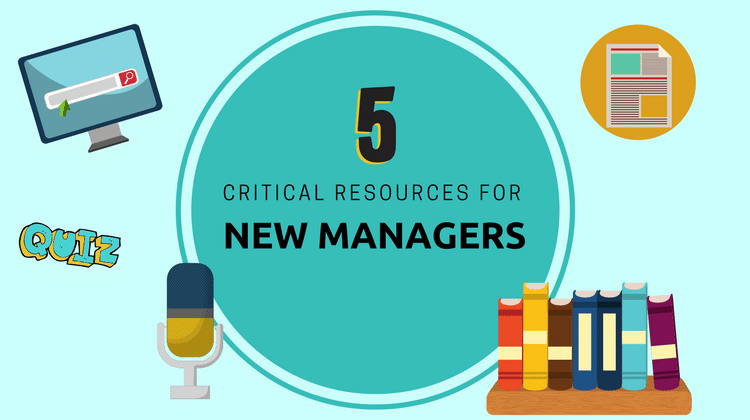
A good friend recently started a new, dream job, and it includes managing other people for the first time. When I ran into her at an event, she shared with me the difficulties of learning to manage other people. Her arched brow and wringing hands showed how much it was weighing on her.
I felt her pain.
Developing as a manager has been at once the most challenging and most rewarding part of my career so far. If I’ve learned only one thing, it is that there is no magic formula for maximizing the skills and attributes of others. While I can’t say that it’s getting easier with time and experience, I do feel like I am better equipped to face the many challenges that managing people brings up.
My biggest lesson so far is that effective management is about taking what works for you out of the mix and instead learning how to get the most out of others.
Here are five resources that have helped me learn how to do just that. Whether you are a new manager or have been a boss for a long time, there will be many tips within these materials that you can incorporate into your daily approach to working with others.
1. The One Minute Manager (Book)
My business partner recommended The One Minute Manager to me countless times before I actually read it, and when I finally did, I regretted waiting so long. Written in 1982, the lessons of this simple story of an effective manager are timeless. It touches on how to efficiently and effectively set goals and give feedback to your employees.
The tone is a little cheesy in places, but it’s a quick, easy read that will leave you with actionable takeaways for improving your management style.
2. Radical Candor (TED Talk, Book and Podcast)
In her popular TED Talk, Radical Candor, Kim Scott shares the story of how her former boss, Sheryl Sandberg (now COO at Facebook), told her she sounded dumb when saying “umm” too often during a presentation. It’s not necessarily the kind of feedback you’d ask for, but Scott maintains it was wonderful management in action.
She argues that the secret to being a great boss is to exercise Radical Candor. That is to Challenge Directly and at the same time Care Personally about your employees.
The TED Talk, book, and podcast all give tangible tips on exactly how to do that. Podcast episodes touch upon how to make meetings more productive, how to deal with a micromanaging boss, how to give and receive feedback, and more.
3. Multipliers (Book)
For me, Multipliers was a game changer. Someone recommended it to me at exactly the right time. A project led by one of my team members did not meet expectations, and I was at my wit’s end about it. I didn’t understand what had gone wrong, and the team member didn’t have any good answers for me.
Reading Multipliers made me realize that my (over)reaction to the situation had undermined and minimized my employee. But it also gave me the tools to talk to my employee about what had happened in an entirely different way. Together, we paved a path forward that maximized each of our natural talents. A year later, she is still with our team and is flourishing in a new role she was promoted into.
4. The Trick to Creating Superstar Employees (Article)
Quoting 1963 research that demonstrated that students told to train smart rats were noticeably more effective than students told to train stupid rats – even though the rats were in fact no different – Entrepreneur’s Elizabeth Dunn shares the trick to creating superstar employees and how important your own approach to an employee is in how well that employee will perform at their work.
It’s a quick read that will change how you talk to your team on Monday.
5. The Four Tendencies (Book, Quiz, Website)
My current addiction, The Four Tendencies, is powerful in its simplicity and profound in its observation. I am recommending this theory to everyone who stands still long enough at the moment.
Gretchen Rubin, of The Happiness Project fame, puts us all into four categories when it comes to how we deal with internal and external expectations – Upholders, Obligers, Questioners, and Rebels.
I love it because the world of work is nothing if it isn’t a whole set of expectations – both our own and those of others. Understanding the different ways that my team respond to expectations has fundamentally altered how I give and receive direction.
The book is awesome, but you can gain loads by taking the quiz and reading the information on the website.
Whether you’re a new or experienced manager, I hope these five resources help you maximize the people on your team. What other resources have you found that have helped develop your approach to management?



these tips I find very useful I’m going to use them with my team and see if it has any impact
The One Minute Manager is definitely something that anyone in any sort of managerial position, even a small “unimportant” one, really needs to read. I too wish I’d read it long ago, especially considering I used to actually be a manager, but hey, better late than never.